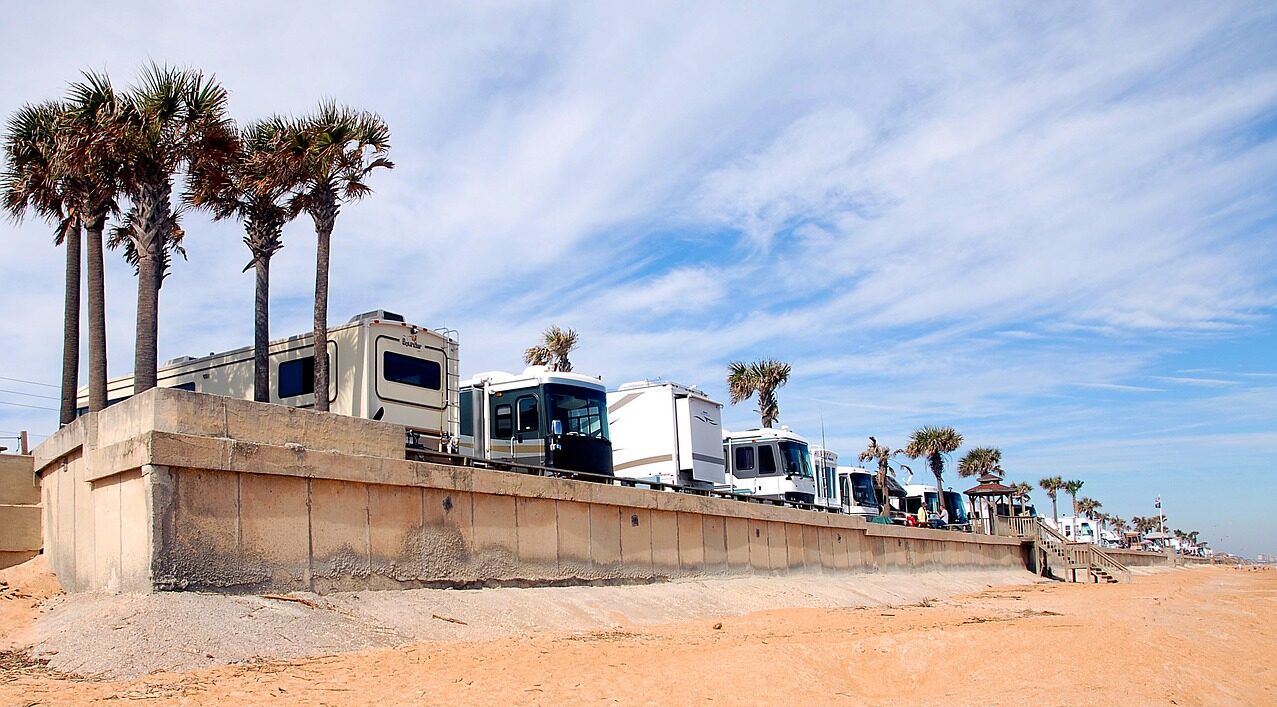By Jason Epperson
Update 10/2/19: California legislation has passed to ban the sale and use of RV holding tank products with formaldehyde and other chemicals beginning in 2022. Senate Bill 317 was signed into law by Governor Gavin Newsom on Thursday. “This is a major victory not only for California campgrounds, but for the environment and for our groundwater supplies,” said Dyana Kelley, president of CalCalNow. “Our campground members were being held responsible for costly testing and penalties when groundwater was shown to have dangerous levels of chemicals from these products.”
California is on the verge of banning RV holding tank deodorizing products that contain formaldehyde and other chemicals. The proposed legislation, SB 317, won unanimous approval from the California Senate. It still needs to pass the State Assembly, but a vote is expected in the coming weeks.
The federal Environmental Protection Agency and the California state Department of Toxic Substances Control have cited Formaldehyde in RV holding tank products as a key cause of septic system failure, which can then threaten groundwater supplies.
The EPA issued a public warning 20 years ago about the dangers of using RV holding tank products with formaldehyde: “When chemicals, such as formaldehyde, are added to septic systems, they can cause bacteria in the system to die. When this happens, the septic system cannot treat waste effectively. Solids that are allowed to pass from the septic tank, due to inadequate or incomplete treatment, may clog the leach field. Furthermore, clogged systems may send inadequately treated sewage to the surface, threatening the health of people or pets who come into contact with it. Or it may percolate to groundwater, where the chemicals and untreated wastewater could contaminate nearby drinking water wells, rivers and streams.” The California Department of Toxic Substances Control issued a similar alert more than a decade ago, which urged consumers to “avoid purchasing and using any chemical toilet product that lists formaldehyde as an ingredient in any concentration.”
The battle against certain chemical holding tank products is being waged by the campground and RV park alliance CampCalNow. Debbie Sipe, CampCalNow’s soon-to-retire executive director, has spent years pushing for a statewide ban. “The very serious threat that formaldehyde poses to the safety of California’s groundwater supplies is not going to go away until the state bans the use of holding tank products that contain this chemical and other non-biodegradable chemicals,” Sipe said.
The association previously encountered stiff resistance from the RV Industry Association (RVIA) as well as Thetford, a leading manufacturer of RV holding tank products. In 2010, CampCalNow sponsored similar legislation banning formaldehyde as well as other non-biodegradable chemicals (bronopol, dowicil, glutaraldehyde, paraformaldehyde, and para-dicholorobynzene). Despite RVIA’s opposition, the legislation passed with bipartisan support, but was vetoed by Governor Arnold Schwarzenegger, who was pushing for all chemical issues to be managed through his new Green Chemistry Initiative.
“What has changed now is that California’s 9 regional water boards have figured out the threat these chemicals pose,” continued Sipe. “As a result, RV parks around the state are under fire to eliminate the products from their systems. State officials are aware of several California campgrounds that have experienced septic system failures that took place as a result of formaldehyde-laden waste being dumped into their systems over the past two decades.”
The costs of repairs to the septic systems and cleaning up the ground after septic system failures are considerable. Sipe says that this time around, the RV Industry Association has agreed not to fight the legislation after a provision was added to delay the ban for one year. CampCalNow says that environmentally friendly, enzyme or bacteria-based RV holding tank products are available today that actually help improve septic system performance and pose no risks to water supplies.








